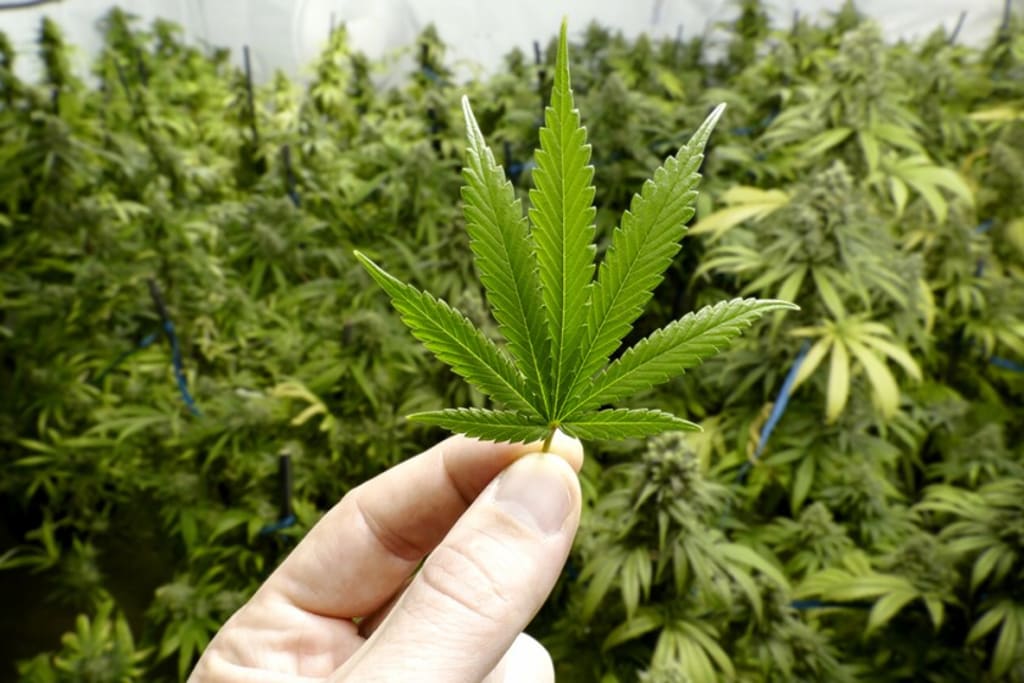Cannabis should be declared Illegal at all cost
Cannabis is legal in various states of the US. Whilst many are fighting for its health benefits, scientists are still saying that its long term use can have significant negative impact on the brain and body of users.

Cannabis, also known as marijuana, is a plant that has been used for various purposes for thousands of years. It belongs to the Cannabaceae family and has three primary species: Cannabis sativa, Cannabis indica, and Cannabis ruderalis. The plant contains various compounds called cannabinoids, the most well-known of which are tetrahydrocannabinol (THC) and cannabidiol (CBD).
THC is the psychoactive compound responsible for the "high" or intoxicating effects associated with cannabis use. CBD, on the other hand, is not psychoactive and is believed to have various potential medicinal properties.
Cannabis has been used for medicinal, recreational, and industrial purposes. Medicinally, it has been used to alleviate symptoms of certain medical conditions like chronic pain, nausea, muscle spasms, and glaucoma. The potential therapeutic applications of cannabis are still a topic of ongoing research.
Recreationally, cannabis is used for its psychoactive effects and is typically consumed by smoking, vaporizing, or ingesting edibles. It is essential to note that recreational use of cannabis is illegal in many countries and states, while some jurisdictions have decriminalized or legalized its use to varying degrees.
The industrial uses of cannabis include the production of hemp, which is a variety of cannabis with low THC content. Hemp has been utilized for thousands of years to produce textiles, paper, building materials, and even food products like hemp seeds and hemp oil.
It's crucial to be aware of the legal status of cannabis in your area, as laws regarding its use can vary significantly from one place to another. While some regions have embraced its medical or recreational use, others maintain strict regulations or outright prohibitions.We're here talking about adults who use marijuana and what impact the drug has on their mental health and intelligence. Experts have been unable to make many definitive statements. Health authorities can only really say marijuana might do harmful things to the brain, but more research is needed. Americans according to a recent poll ranked sugar as more harmful than marijuana. Are they wrong? Maybe!
- What are the lasting impacts of using marijuana?
- How does regular cannabis consumption affect our health in the long run?
- Are there any adverse consequences of prolonged marijuana use?
- Can smoking weed for a prolonged period have any negative effects on the body and mind?
- What do we know about the potential long-term risks associated with marijuana consumption?
So a new report titled Long-term effects of marijuana use on the brain is offering fresh evidence that a chronic user's brain undergoes significant structural changes for those who've used marijuana regularly over six to eight years. What kinds of changes? Using MRI scans researchers compared the brains of 48 3-point marijuana users who took the drug on average 11 times per week to those of 62 nonusers. The yellow area on this MRI scan shows the average amount that the grey matter density was diminished in the bilateral orbital frontal cortex of the marijuana users. This is the part of the brain that's involved in decision-making. At the same time, the MRI shows that marijuana users have greater activity than the control group in another section of the plane called the forceps minor. This is the white matter that connects the brain's frontal lobes. that means according to researchers pot smokers have more connections to facilitate communication between these lobes and the more efficient communication makes it more responsive to the environment. why would marijuana users have higher connectivity and isn't that a good thing? Not necessarily. The report suggests this part of the brain may be compensating for gray matter losses. However, the study finds that over years of regular use, those increased connections wither away meaning the brain may be losing its ability to compensate for lost gray matter. Then what happens eluding marijuana scientists not involved in this particular study say, these longtime users could be at increased risk to be driven by immediate rewards and not looking for more long-term gratification and may be more vulnerable to mood and anxiety problems. The authors of the study admit they found no correlation between an individual's IQ and reduced gray matter in the orbital frontal cortex. They don't know whether heavy pot users had less grey matter to begin with making them more prone to using the drug and if so whether marijuana made those structural deficiencies worse. Yet again the public is told more studies are needed. So at this point setting aside the emerging consensus among researchers that pot is harmful to the developing brains of adolescents in places where it's legal, do leading scientists think there should be a warning label on marijuana? Some do. Crystal Dahl of the University of Wisconsin-Milwaukee would have it say: High THC marijuana can cause subtle cognitive deficits brain structure abnormalities mood and sleep problems. Daily use is not recommended at least until the science becomes more conclusive that's the short answer.
About the Creator
Dharmendra Bonomaully
Hello I am Dharmendra Bonomaully from the lovely island of Mauritius. I am a writer and book reviewer. I have been an avid reader since childhood. I am fluent in both English and French language.






Comments
There are no comments for this story
Be the first to respond and start the conversation.